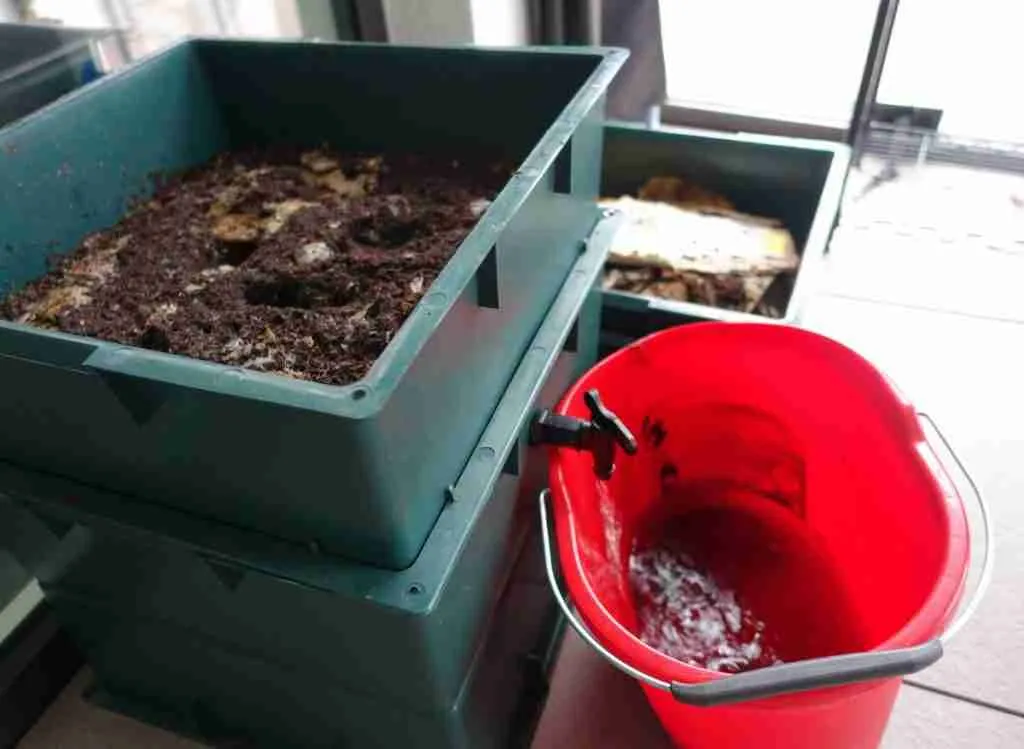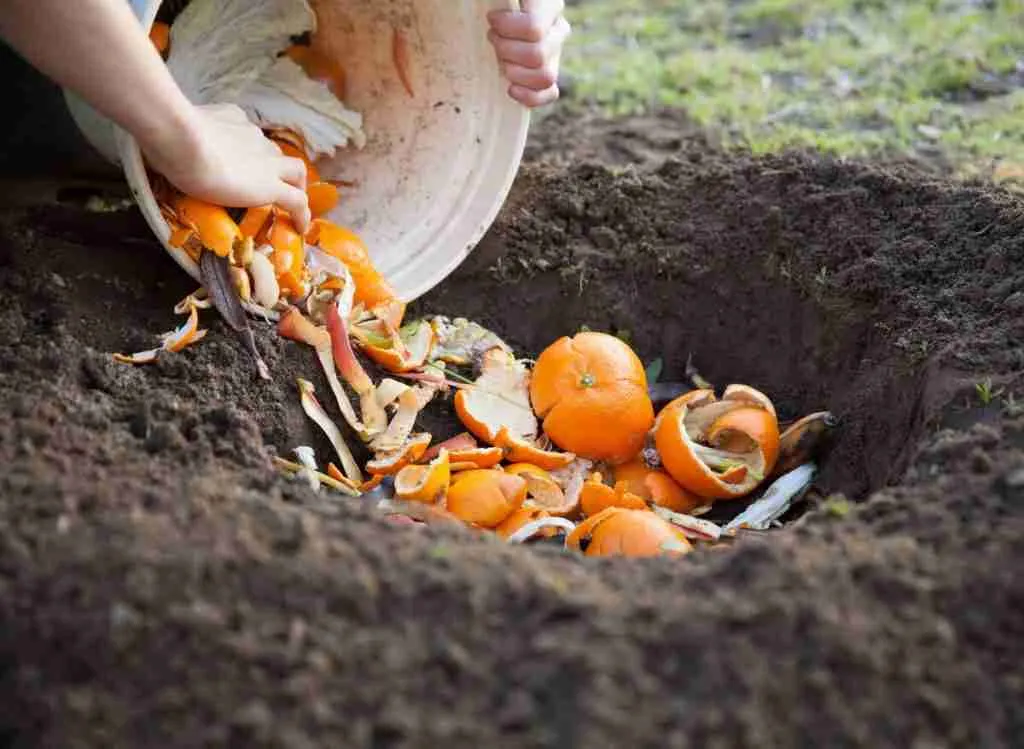In the United States, food scraps and yard waste currently make up more than 30 percent of what people throw away, according to the United States Environmental Protection Agency (EPA). And both Bokashi and composting help convert these food scraps and yard waste into organic fertilizers for gardening and agricultural uses.
Indeed, composting or Bokashi are excellent ways to reduce food wastage. So, bokashi vs. compost: what are the differences, and which one should you choose?
Despite being different from one another, both these methods of composting are very beneficial, preventing the spread of harmful bacteria and other fungi resulting from wastage. But, they feature a different method to break the waste materials.
Read on to find out the differences between Bokashi and compost, the advantages of each, and which one is better for you.
See also: Compost Vs. Vermicompost: Which Should You Use?
What is Bokashi?
Bokashi is a unique and uncommon way of composting and fermentation. It uses fermented organic matter mixed with microbial stock to enhance the soil and improve crop quality. The word Bokashi originated from the Japanese language meaning “Fermented organic matter.”
The fermentation of organic materials produces Bokashi with a microbial inoculant. Once fermented properly, this material can be added to the agricultural soil to increase its fertility. They are more effective than artificial fertilizers made out of hazardous chemicals.
Nowadays, Bokashi gained popularity in the United States because of its usefulness and efficacy. Contrary to other composting methods requiring large bins, you only need a bucket and a few other simple tools with bokashi. In addition, you can do Bokashi in small indoor rooms by buying the required microorganisms.
See also: Can You Really Compost Bread? (Let’s find out!)

What Is Bokashi Made Of?
Bokashi is part of Effective Microorganisms (EM) products. A diverse range of microbes extracted from natural decomposition systems, including compost and forest leaf litter layers, are combined into a single water-based product. The major types of microbes in Effective Microorganisms (EM) are:
- Lactic acid bacteria
- Actinomycetes
- Photosynthetic bacteria
- Fermenting Fungi
- Yeasts
How to Make Bokashi?
In the 1970s, Japanese scientists developed effective microorganisms at the University of Ryukyus in Okinawa. Dr. Teruo Higa discovered that microbes could coexist in mixed cultures, and the individual benefits of each microbe are magnified when mixed with compatible microbes.
Preparing Bokashi is not difficult if one knows its proper method. Here is a brief method to make this beneficial organic material.
- You will need a sealed container to store food scraps because the microbes responsible for fermenting organic materials work best without oxygen.
- Take the kitchen waste, including dairy products and other food remains.
- Put this waste in a large tub or bucket that is commonly referred to as a Bokashi bucket.
- Mix bran in this waste material. Use different layers of bran while going for making such a beneficial material.
- Cover the whole material in such a way that it becomes airtight.
- Let the waste rest for at least 12 days.
- Remember that you’ll have to release a byproduct from the Bokashi daily.
- You can use a professional Bokashi bucket with a facility to easily remove the byproduct.
- After the above-mentioned time, open the bucket and mix it thoroughly.
- It’s ready to be used as an organic fertilizer.
- There are essential differences in how bokashi is created in the United States and other parts of the world.
- In the US, bokashi typically begins as a combination of food scraps and bokashi inoculants, including effective microorganisms, water, and molasses mixed into wheat and bran.
- After 2-3 weeks of fermentation, the combination produces leachate, also called bokashi tea, which contains organic acids, alcohols, and other metabolites that must be periodically drained to maintain microbial activity.
- After fermenting, the bokashi mix is buried underground for about two weeks. And during these two weeks, the bokashi combination will further degrade and release nutrients.
See also: How To Easily Compost Rice? (Find Out How!)
What are the Benefits of Bokashi?
Though Bokashi is a complete organic fertilizer, it can also be used along with any other compost material for enhanced fertility. Here are some benefits associated with the use of Bokashi.
1- Effective Way of Handling Food Waste.
Bokashi is a practical way to quickly and efficiently transform food and kitchen waste into effective soil fertilizer, according to research.
Instead of spreading your food waste, you can use it for beneficial purposes. One of the best ways to use them for a beneficial purpose is by converting them into Bokashi. You can manage food waste effectively in this way.
2- An Easy to Make Organic Fertilizer.
To increase the fertility of the soil, the spreading of Bokashi can be very beneficial. This organic material is easy to make. You can follow the above-mentioned simple procedure to prepare such a fertilizer.
3- Help Reduce Solid Food Waste From Landfills.
In the United States, food waste contributes to making up about 40% of municipal solid waste in landfills. According to an EPA study, this waste has been proven to contain hazardous pathogens, with around 80% of solid food waste containing fecal coliforms.
Even though traditional composting also helps reduce food wastage, you will need high heat if you want to compost organic material such as meat and dairy. With bokashi, you can quickly ferment meat and dairy scraps and safely add them to your soil.
4- Needs a Little Space
Generally, bokashi is cheap and requires minimal effort and a small space indoors. In addition, bokashi doesn’t require mixing green and brown materials compared to traditional composting.
Unlike other composts, Bokashi needs less space for preparation. You can prepare it in tight spaces within a special bucket. If you’re in a very tight space, you can use a small Bokashi bucket for more than one batch.
4- No Odd Smell
As Bokashi buckets are airtight, so there is no risk of an odd smell. You can easily store the bucket in any corner of the home until it reaches completion.
5- Bokashi Contains Higher Total Nutrients, Particularly Nitrogen.
One of the benefits of bokashi compared to traditional composting is the higher levels of nitrogen bokashi ferment will contain, boosting crop yields where N is limiting or reducing the use of synthetic nitrogen fertilizer.
6- Helps to Increase Land Fertility.
As the Bokashi is made up of kitchen waste, it is very helpful in increasing land fertility. Also, it will start showing its effects from the very first day.
Compared to traditional composting, bokashi has high carbon, hydrogen, oxygen, nitrogen, and energy, which will, in turn, lead to better improvements in soil quality and crop growth, according to research.
What is Compost?
Compost is also an organic material made up of rotten leaves, food waste, plant scraps, etc. Unlike Bokashi, which uses a fermentation process, this method uses a decomposition process for converting waste materials into organic fertilizer.
See also: Here Are The Top 10 Most Beneficial Insects For Gardens.

How to Compost Waste Material?
Here is an easy method to make compost from the kitchen and other waste materials.
What is Required?
- Brown Material – includes dead leaves, dry branches, and twigs.
- Green Material – The green material used in the preparation of compost consists of different leftovers of vegetables, coffee grounds, grass, waste of fruits, and other juicy materials.
- Water – To mix the green and brown materials, water is crucial.
Ensure that your compost pile has an equal amount of browns to greens. When you create your compost, don’t forget to alternate layers of organic materials of different-sized particles.
In general, the green materials provide nitrogen, the brown materials provide carbon for your compost, and the water supplies moisture to help break down the organic matter.
Tips on Creating Traditional Composting:
Here is an easy way to prepare compost.
- For your compost pile or bin, choose a dry and shady spot close to a water source and easy to access.
- Add all the available brown and green materials to the rack.
- Add an adequate amount of water.
- Once you create your compost pile, mix grass clippings and green waste into the pile and place fruit and vegetable waste under 10 inches (25.4 cm) of compost material.
- Cover your compost to keep it moist. When you notice the material at the bottom becoming dark and rich in color, your compost is ready.
- Generally, it takes your compost to be ready for use in two months to two years.
See also: Top 5 Best Gloves For Safely Removing Brambles.
What are the Benefits of Compost?
Here are some benefits associated with the use of Compost in the soil.
- It helps in increasing the fertility of the soil. Composts and vermicompost have beneficial and rapid effects on plant growth and control of plant pathogens.
- Compost helps the soil retain moisture and prevent plant diseases and pests.
- Promotes the production of fungi and beneficial bacteria that break down organic matter to produce rich nutrient-filled humus.
- It acts as a pest and disease repellent.
- Lowers methane emissions from landfills and reduces your carbon footprint.
- It’s far better than artificial fertilizers and reduces the need for using chemical fertilizers.
- It adds beneficial bacteria and fungi to the soil that help in the breakdown of organic material instantly.
- It discourages the excretion of methane gas from the soil, which makes the environment healthier.
- It adds beneficial carbon to the soil.
Bokashi Vs. Compost: What Are The Differences?
Here’s a snapshot of the differences between bokashi and composting.
| Bokashi | Compost | |
| Bokashi vs Compost | Bokashi depends on fermentation to break food scraps down as opposed to decomposition. It is anaerobic, depending on a ‘lack of oxygen’ for optimum results. | Bokashi is a two-step process after your Bokashi bucket is full. You will need to either add it to a traditional compost bin or bury it before it becomes plant food. |
| Number of steps included in the process | Generally, traditional compost is a one-step process, and after the decomposition of your kitchen waste, you can use it right away as fertilizer. | Generally, traditional compost is a one-step process, and after decomposition of your kitchen waste, you can use it right away as fertilizer. |
| Time for processing | Bokashi is faster. Generally, Bokashi takes 4-6 weeks to break down kitchen waste. And then, depending on individual circumstances, it will take two to three months before it becomes nutrient-rich fertilizer. | Compost takes longer compared to bokashi. Typically, the decomposition can take up to six months in traditional compost unless you are a dedicated composter. |
| Amount of nutrients, including: – Carbon – Hydrogen – Oxygen – Nitrogen – And chemical energy | Higher in Bokashi | Lower because most of these nutrients will be lost to the atmosphere during composting. |
| The concentration of lithospheric nutrients, including: – Phosphorus – Magnesium – Potassium – And calcium | Lower | Higher |
| Water content | Higher | Lower |
| The amount of rapidly decomposable material, such as: – Sugars – Simple starches – Proteins | Higher | Lower |
| The amount of highly complex stable organic compounds, including: – Humus – Cellulose – And lignin | Lower | Higher |
| Active chemicals like organic acids | Higher | Lower |
| pH | 4 | 7 |
Can You Put Bokashi In Compost?
You can add bokashi to compost as it will help to break down the microbes faster. In general, fermented Bokashi waste will speed up the decomposition process inside your compost bin.
Does Bokashi Speed Up Composting?
Bokashi can help the process to speed up, and you can get the compost ready before time. Bokashi helps break down the fiber fast.
Is Bokashi Better Than Composting?
Bokashi works on the fermentation process. Fermentation effectively breaks the kitchen waste but fails to decompose the material with high carbon amounts. On the other hand, compost works on the decomposition process. This process is beneficial in breaking down the carbon materials too. So, composting is better than Bokashi.
How Long Does Bokashi Take To Compost?
Generally, bokashi takes 4-6 weeks to break down kitchen waste in the anaerobic container and another two to three months before it turns into nutrient-rich fertilizer.
And traditional composting generally takes two months to two years for food scraps to break down into usable matter.
The other composting requires several months, but the best part about Bokashi is that it requires less or equivalent to one month.
See also: Top 4 Best Gardening Gloves For Blackberries.
Final Thoughts
Both Bokashi and composting are very beneficial methods to convert waste materials into beneficial organic matter. You can use both of them to decompose household waste and turn it into rich and organic fertilizer.
Also, Bokashi and composting are the best alternatives to chemical fertilizers that may prove poisonous for different plants. If you have to handle the kitchen waste, go for Bokashi. However, use composting to handle the garden waste effectively.



